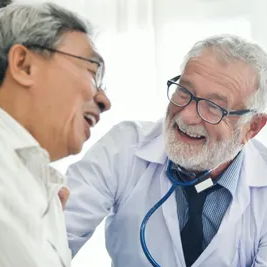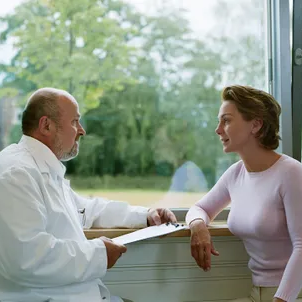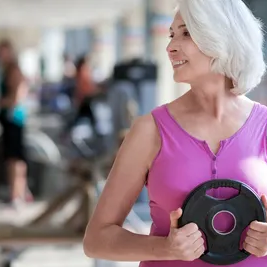Office Services
Annual Wellness Visit & Physical Examination

Your Annual Wellness Visit & Physical Examination is your opportunity to reflect on your current health strategies and set a plan for future wellness. Your provider at Achieve Health is recognized as Best-In-State for Wellness and Preventive visits. This is the most detailed and comprehensive evaluation that you will likely ever have. Don’t delay.
Annual Wellness Visit & Physical Examination FAQs
Relationship establishment is critical when it comes to healthcare. Your Annual Wellness Visit & Physical Examination enables your provider to reaffirm his relationship with you. He believes that the more we know about our health status, the better equipped we will be to prevent disease and disability. Achieve Health has been recognized as providing the most cost-effective comprehensive care that is saving our health care system resources through screening, prevention, and intervention.
Plan on spending about two hours for this important yearly event.
The first hour is spent with the Medical Assistant. performing a variety of screening tests. Testing will include a complete blood profile and may include a chest x-ray, spirometry, electrocardiogram, and vascular and nerve testing. The Medical Assistant will also spend time reviewing your medications and your medical history.
The next hour will be spent with your provider who will review your vaccination status, recommend appropriate out of office health screenings, do a complete head to toe physical examination, discuss with you the results of your extensive laboratory profile, review your cardiovascular screenings, and counsel you regarding potential interventions toward optimizing your total wellness with a goal of medication-minimized productive longevity.
You should come fasting at least 8-hrs to your appointment.
- Please Note: It is important to drink water abundantly so that you are well hydrated. Yes, you may drink LOTS of WATER while fasting!
Be sure that you prepare for your visit by bringing with you:
- A list of all medications you are currently taking, including any vitamins and herbal supplements
- A list of any symptoms you may be having, including what they are, when they occur, how long they last and how they are changing
- The results of previous screenings including laboratory tests, colonoscopy, mammogram, etc.,
- A list of prior treatments including surgeries
- Pertinent family history, including diseases and chronic illnesses of immediate family
- Questions you want answered
The Annual Wellness Visit & Physical Examination is your opportunity to counsel with your provider about how you can improve your overall health. Your provider will offer lifestyle coaching, make medication recommendations, or recommendations on how to avoid needing medications for chronic illness such as diabetes, high cholesterol, and hypertension.
Better Diabetes Care

Utah's Best Diabetes Management Services
Excess body fat, especially in the belly area, makes us more susceptible to metabolism related illnesses like type 2 Diabetes. Symptoms of Type 2 Diabetes include fatigue, excessive urination, and inappropriate appetite or thirst. Often those with diabetes have numbness or tingling in the feet or hands, sometimes blurred vision, even forgetfulness.
Type 2 Diabetes means that your body is unable to process sugars from foods appropriately, most often because of your body’s resistance to the action of your own insulin.
Let our providers show you how you can improve your diabetes, reducing or stopping completely your medications through healthy lifestyle changes.
Hypertension / High Blood Pressure

Essential Hypertension
More than 30 million Americans have high blood pressure (hypertension). Many are unaware they have it because hypertension develops over many years, and there are no symptoms. However, lack of treatment can lead to stroke, kidney failure, and heart problems.
Let our providers help you control blood pressure with less medication. You can do this!
Hypertension FAQs
Blood pressure is a measure of the force with which your heart pushes blood through your arteries.
The top, or systolic number, is the force exerted in order to start your blood flowing. The bottom, or diastolic number, is how much your heart relaxes between contractions. Hypertension is often referred to as the silent killer because it does not present with any particular symptoms — less than half of those diagnosed with hypertension are in good control.
High blood pressure (hypertension) is diagnosed when your blood flows through your blood vessels with an inappropriately high force. Optimal blood pressure is 120/80 or less. A reading of 135/85 on multiple checks indicates hypertension.
An automated blood pressure cuff is used to measure your arterial blood pressure. The machine records the pressure at which the blood first starts to flow again (Systolic Pressure) and the pressure at which flow continues without resistance (Diastolic Pressure).
Benign or “Essential” Hypertension
This is the most common type. Often this is brought on by sedentary lifestyle resulting in a higher baseline adrenaline response. This tightens up the blood vessels this is referred to as cardioautonomic resilience.
The word "Essential" means that blood pressure is elevated as a generalized physiologic response, not just in response to a brief event like anxiety or stress.
Malignant Hypertension
This is a rarer type that is usually associated with severe illness, like trauma or severe infection.
One cause of Malignant Hypertension is Renal Artery Stenosis. The arteries carrying blood to the kidneys become gradually clogged with cholesterol plaques. The kidneys sense this reduced blood flow as if it were a drop in total body blood pressure. The kidneys can secrete a series of hormones that drive up the total body blood pressure, trying to improve blood flow through the clogged kidney arteries. As such, despite taking medications, the blood pressure continues very high. This requires further diagnostic testing and often an "angiogram" to treat.
How is high blood pressure treated?
Most commonly, high blood pressure, Essential Hypertension, is gradually brought about by poor lifestyle choices. Poor diet, sedentary lifestyle, and excessive stimulant use such as caffeine beverages and nicotine contribute significantly.
Once your provider determines that you have essential hypertension, he will likely recommend lifestyle changes that will include dietary changes -- including reduced stimulant consumption, regular aerobic activity, weight loss, and smoking cessation.
Depending on the severity of your hypertension, medications may be used to assist you in your healthful journey. The important thing is that, as you embark on a plan of dietary change and regular exercise, you are protected from the injurious effects of hypertension. Medications can always be stopped in the future as you make the changes are the true treatment of hypertension.
Hypothyroidism

Symptoms such as feeling tired, gaining weight, and always feeling cold, indicate that you could have hypothyroidism. Hypothyroidism occurs when the butterfly-shaped thyroid gland in your neck does not make enough hormones, causing bodily functions to slow down.
Call Dr. Jeffrey Ogden at Achieve Health in Orem, Utah, to stop your symptoms from interfering with your life.
Hypothyroid FAQs
Hypothyroidism happens when your thyroid gland does not produce enough hormones. This can cause a generalized slowing of all bodily functions.
The thyroid is part of your endocrine system and works to regulate your metabolism. Metabolism includes how fast your heart beats and how fast your body burns calories.
Hypothyroidism develops slowly and many of the symptoms mimic those of aging or other health issues. As such, many people do not notice the gradual onset of hypothyroidism.
Some of the more common symptoms include:
- Fatigue
- Weight gain
- Decreased mental sharpness
- Joint pain
- Dry hair and skin
- Heavy or irregular menstrual periods
- Erectile Dysfunction
- Depression
The two most common types of hypothyroidism are autoimmune and idiopathic.
Autoimmune Thyroid Dysfunction
Hashimoto’s Thyroiditis - Your immune system attacks your thyroid, causing it to become inflamed and enlarged. This induces the thyroid to stop making enough thyroid hormones. The gland eventually shrinks as it stops producing thyroid hormone.
Grave’s Disease - Your gland is stimulated by the autoimmune antibody to increase production of thyroid hormone. This makes you “hyper” or high in thyroid hormone. Eventually, the gland “burns out” and is unable to produce more hormone making you “hypo” or low thyroid.
Idiopathic
The majority of people low in thyroid hormone are this type. There are two common times in life when the thyroid gland may fail to produce the hormone in adequate amounts. The first is during adolescence. The second is with increasing age, typically after 50. Just like the vision, hearing, and joints tend to wear and not function as well, the thyroid gland may lose its ability to properly function over time.
Blood tests determine if you are hypothyroid. These tests are done on-site at Achieve Health and the results are discussed with you at the time of your visit. It is important to have a complete thyroid profile including a TSH, free T3, and free T4.
There are a variety of thyroid supplements to treat hypothyroidism. It is important to remember that, though it may be made in a laboratory, levothyroxine (T4) is the bio-identical hormone that your gland used to produce by itself. There are combination preparations such as Armour Thyroid ® or Nature-Throid ® that combine levothyroxine (T4) and liothyronine (T3) in the same pill. Blood tests will allow your provider to determine which preparation is right for you.
Hormone Replenishment (Thyroid, Menopause, Testosterone/ED)

Hormone Replenishment
As both men and women age, hormones production tends to decrease. However, the body needs essential hormones in order to function correctly. Hormone therapy can help reduce the instances of illness and poor functionality, especially for older people. Dr. Jeffrey Ogden at Achieve Health in Orem, Utah, can help you with your hormonal replacement needs.
Hormone Replenishment FAQs
Hormone replacement therapy may be required in people whose bodies are not producing adequate levels naturally. This happens in women going through menopause, usually around age 50, or at the time of surgical hysterectomy. Men, too, experience reductions in hormones though not with the regularity that women experience.
Symptoms associated with low hormone states include:
- Decreased sexual performance and/or libido
- Vaginal dryness or painful intercourse
- Urinary frequency or incontinence
- Dryness or thinning of the skin
- Hair loss including reduced pubic hair
- Sleep pattern disruption
- Emotional changes / Mood swings
Your provider at Achieve Health will determine with you which hormonal therapy product might be right for you based on your age, overall health, and the problems or illnesses you are looking to combat.
Testosterone levels in men tend to peak during adolescence and early adulthood. As you age further, your testosterone level decreases. Some reductions in total testosterone are brought about by obesity. Your provider at Achieve Health may recommend testosterone replacement therapy, which may improve:
- Energy
- Mood / Sense of well-being
- Bone density
- Libido / Sexual performance
- Muscle mass and weight
Testosterone hormone supplementation is inadvisable for men who have normal testosterone levels for their age and body mass. That's because it can lead to prostate enlargement, subsequent urinary symptoms, or increase the risk of prostate cancer.
Estrogen levels decrease substantially during and after menopause. Lack of estrogen or fluctuations in the pituitary hormones that encourage normal menstrual cycling (FSH & LH) can cause an array of symptoms including:
- Feelings of warmth and periods of sweating and heat (hot flashes)
- Vaginal symptoms, including itching, burning, and dryness
- Decreased libido
- Painful intercourse
- Difficulty with urination or incontinence
Estrogen hormone therapy is not recommended in women who have a personal or family history of breast or endometrial cancer.
Your provider at Achieve Health with decide with you if hormone therapy is right for you.
MonaLisa Touch

What is MonaLisa Touch?
MonaLisa Touch is an innovative laser treatment that treats the symptoms associated with estrogen depletion of menopause - vaginal dryness, burning, urinary leakage, and painful intercourse. Treatment is completed with no need for anesthesia or a hospital visit.
MonaLisa Touch is nearly painless, noninvasive, and has no side effects. That makes it a great option for women who want to restore normal vaginal function without invasive surgery or prescription drugs.
During treatment, Dr. Ogden uses laser energy to stimulate new collagen and blood vessel growth that normalizes the thickness, softness, and moisture of the vaginal wall.
MonaLisa Touch FAQs
MonaLisa Touch improves vaginal health by stimulating your body to regenerate cells in your vaginal walls. That creates thicker, stronger vaginal walls and increased blood supply.
The procedure can improve conditions including:
- Vaginal dryness
- Painful sex
- Recurring infections
- Incontinence
- Vaginal laxity
According to CynosureⓇ, the company that distributes the MonaLisa Touch system, more than 15,000 women have had the MonaLisa Touch procedure, and many reported immediate results.
Breast-cancer treatment sometimes includes a risk-reducing surgical removal of your ovaries. That triggers early menopause, and can lead to vaginal dryness as well as itching or burning sensations.
One treatment approach involves using vaginal creams or lubricants to sooth the area or reduce discomfort during sex. Estrogen supplementation can also be helpful, but women who’ve had breast cancer are not good candidates for estrogen therapy, as the hormone can stimulate cancer-cell growth.
MonaLisa Touch offers these women a safe and lasting alternative.
Treatments are fast and painless, and involve no special preparation or anesthetic. You might feel a sensation of warmth during the procedure, which lasts about five minutes. Most women have a series of three treatments spaced out over 12 weeks.
You’ll need to avoid vaginal sex for two to three days after a treatment. That allows your body’s natural healing process to work, creating new cells to thicken your vaginal walls.
MonaLisa Touch has been the subject of more than 18 clinical studies to date. That makes it the most well-researched vaginal laser procedure now available, which is why so many women are curious to learn more about how it can help improve their vaginal health.
Osteoporosis

Osteoporosis & Osteopenia
Osteopenia is a generalized thinning of the bone caused by loss of bone calcium in response to menopausal estrogen loss or loss of testosterone in men. When it progresses to a high fracture risk status, we refer to this as osteoporosis.
One in three women and one in five men over the age of 50 experience osteoporosis-related fractures each year in the US. These include hip fractures, spinal compression fractures, and commonly wrist fractures after a fall. Osteoporosis has no symptoms until after it's too late, so getting check-ups is extremely important.
If you are a post-menopausal woman or a man with low testosterone, then you should be evaluated for osteoporosis.
Osteoporosis FAQs
Osteoporosis is a gradual structural weakening of your bones. It often leads to unexpected fractures or fractures with only minor injury like a fall. Most commonly this affects the hips, wrists, and spine.
Your body is continually remodeling and rebuilding the supportive components of your bones. After menopause in women, and with decreased testosterone levels in men, or with steroid medication use, the body’s ability to remodel and rebuild bone is reduced. This leads to loss of total bone mass over time.
Osteopenia is bone that is weakening. Osteoporosis is bone that has weakened to the point that a fall, bending over, or even just coughing may cause fractures.
Your provider at Achieve Health will first take a history and then do a physical examination.
In the diagnoses of osteoporosis your provider considers your:
- Age
- Gender
- Race
- Personal history
- Family history
- Body frame size
The diagnosis of Osteopenia or Osteoporosis requires a bone density test called a DEXA scan, which involves using a low-level X-ray machine to measure the mineral content in your bones while you lay on a soft, cushioned surface.
Your provider at Achieve Health may also tests your hormone levels, because thyroid and other hormone issues may contribute to osteoporosis.
Lifestyle Modification
For everyone interested in maintaining healthy bone, adequate calcium, Vitamin D, and protein intake are important. Frequent and regular weight-bearing activities (where the weight of your body is carried by your legs and spine) such as brisk walking is critical. There is good indication that some types of weight-lifting activities may also be beneficial. Ask your provider for specific recommendations for you.
Specific exercises designed to improve stability and prevent falls are definitely a good course of action.
Medication
There are many medications to treat osteoporosis. For those who are in the osteopenia range, medications are not usually recommended. If you are truly osteoporotic then the best intervention is a medication that will be decided upon with you based upon your particular history and severity. This might be hormone replacement, a calcium building hormone, one of the mineral building medications, or even one of the new immunologic medications.
Regular exercise and proper nutrition are essential for keeping your bones healthy.
You should also:
- Eat plenty of protein
- Maintain an appropriate body weight
- Get enough calcium and vitamin D from diet and supplements
- Exercise regularly (aerobic and strength training)
- Stay away from tobacco, alcohol, and caffeine.
Asthma & COPD

About Asthma & COPD
Nearly 150,000 people die in the U.S. each year as a result of chronic lower respiratory diseases such as asthma, emphysema, and chronic bronchitis. Gasping for air after exercise and coughing uncontrollably, could be signs of asthma or chronic obstructive pulmonary disease (COPD).
Asthma & COPD FAQs
Asthma is an allergic tightening of the airways that can trigger coughing and difficulty breathing. The characteristic symptom is wheezing. This is often present in childhood and may worsen throughout adult life. Though there is no cure for asthma, Dr. Ogden can help you control your symptoms and improve your breathing.
Symptoms include:
- Shortness of breath
- Chest tightness or pain
- Whistling or wheezing sound when exhaling
Your doctor at Achieve Health will work with you to determine the correct medication to control your asthma based on your age, symptoms, diagnostic studies, and allergic triggers. Treatment depends on whether you need long-term control medications or only occasional episodic treatment.
Avoiding the irritants and allergens that trigger your asthma is important.
These can include:
- Airborne substances such as pollen, dust mites, and smoke
- Cold air
- Stress
Chronic obstructive pulmonary disease (COPD) is the title given to a group of lung diseases that block airflow in the lungs and make it increasingly difficult to breathe.
COPD includes:
Emphysema
This is caused by exposure to cigarette smoke, irritating gases, and particulate matter such as asbestos, which destroys the alveoli (air sacs) at the end of air passages in your lungs.
Chronic bronchitis
This is an inflammation of the lining of the bronchial tubes which carry air to and from the lungs. This causes excessive mucus production and airway plugging.
COPD symptoms are similar to those of asthma and include coughing accompanied by phlegm, fatigue, and frequent respiratory infections.
It can also:
- Make it difficult for you to climb stairs
- Cause excessive fatigue with small exertions
- Have increased confusion or memory loss
- Have other chronic diseases including asthma
A diagnosis of COPD comes with the recommendation that you quit smoking. Long-term controller medication may be necessary. Prescriptions for rescue inhalers, oral steroids, and antibiotics are usually prescribed for flare-ups.
COPD makes you more susceptible to both influenza and pneumonia, so Seasonal Influenza vaccination every year is essential. In addition to cigarette smoke, you should avoid things that can irritate your lungs, including pollution and air that is excessively cold or dry.
Colds, Flu, & Bronchitis

Respiratory Illness
If you are coughing, running a fever, or cannot catch your breath, you could have a cold, the flu (influenza virus), bronchitis, or even pneumonia. Respiratory infections can be mild or serious. At Achieve Health Internal Medicine we have the ability to diagnose you properly without guess work. In-office laboratory and x-ray services means that we can tell you if you have the flu or just a cold - - Right Now!
Respiratory Illnesses FAQs
Pneumonia is an infection that causes inflammation of the air sacs in your lungs. This irritation often leads to your air sacs filling with fluid or pus. Other symptoms include a cough with discolored phlegm, often accompanied by fever, chills, and difficulty breathing.
Pneumonia results from a variety of germs, including bacteria, viruses, and fungi. While infants, seniors, and those with suppressed immune systems are the most at risk for developing pneumonia, it can affect anyone at any age.
It's essential to make an appointment with Dr. Ogden at Achieve Health if you have chest pain, difficulty breathing, a fever higher than 101 F, as well as a persistent cough, especially if you're coughing up discolored mucus.
Dr. Ogden prescribes an antibiotic for bacterial pneumonia. However, antibiotics won't alleviate viral pneumonia as might be caused by influenza. Specific anti-virals may be needed. If pneumonia is severe you may require additional oxygen or even hospitalization. That’s why it is so important to be evaluated by a qualified healthcare provider like Dr. Ogden.
Bronchitis is the medical term for swelling in the main air passages to the lungs. It is often accompanied by coughing, sinus congestion, and gray-green mucus.
Most bronchitis starts with a virus, like a common cold. Left untreated it can progress to a secondary bacterial infection. When that happens, there is usually discolored phlegm from a productive cough, and fever.
With an acute viral bronchitis, symptom treatment is best. Decongestion, hydration, and staying rested usually are adequate. With worsening or prolonged symptoms then evaluation by a qualified healthcare provider like Dr. Ogden is essential.
Anti-virals for influenza, antibiotics for secondary bacterial infections, inhaled steroids for inflammation, and inhaled medications to open up the airways are how bronchitis can be treated by your provider at Achieve Health.
As with avoiding most infections, you should wash your hands often. Don’t smoke, and make sure you and your children are up to date on all vaccinations, including the Seasonal Influenza Vaccine. For those aged 60 or older, make sure you have had your two pneumonia vaccines (PPV23 & PCV13).
Regardless of whether you are diagnosed with pneumonia or bronchitis be sure to:
- Decongest the sinuses and chest with over-the-counter medications such as Mucinex ®
- Increase fluid intake
- Get plenty of rest
- Take medications such as acetaminophen (Tylenol ®) for aches and fever control
